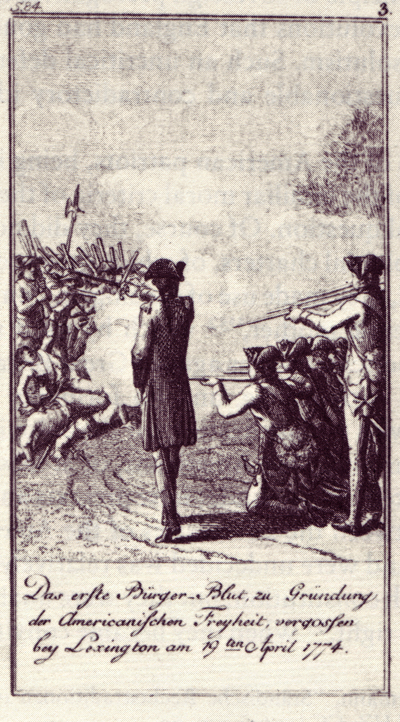Source

Source: D.N. Chodowiecki, Six Scenes from the American Revolution, Engraving, 1784, The John Carter Brown Library at Brown University, JCB Archive of Early American Images.
The Battle of Lexington and Concord was the first military engagement of the American Revolution. In the words of the American poet Ralph Waldo Emerson, it was “the shot heard ‘round the world” [Concord Hymn (1837)]. German intellectuals followed the revolution closely and their responses inspired a large body of literature. Supporters of the revolution, such as Christian Friedrich Daniel Schubart, Christoph M. Wieland, and Johann Georg Jacobi, saw it as a fulfillment of Enlightenment ideals and a stimulus to action in Germany. Detractors and critics, among them August Wilhelm Schlözer, Matthias C. Sprengel, Jakob Mauvillion, and Christian von Dohm, viewed it as either unjustified or a threat to constitutional reform, which the more liberal among them hoped to achieve in Germany within the framework of existing institutions. The most radical proponent of the American cause was Johann Schmohl, who wrote in his banned Ueber Nordamerika und Demokratie that “Europe shall receive its salvation from America.” In spite of contentious debate and interest on all sides, the American Revolution failed to become a stimulus to action in Germany. The erroneous date of the battle (1774) in the caption might be viewed as proof that while news from America did reach the European continent, they were not always correct in all the details.

Source: D.N. Chodowiecki, Six Scenes from the American Revolution, Engraving, 1784, The John Carter Brown Library at Brown University, JCB Archive of Early American Images.